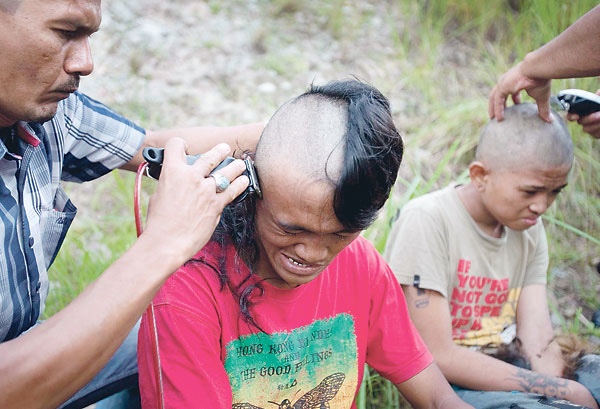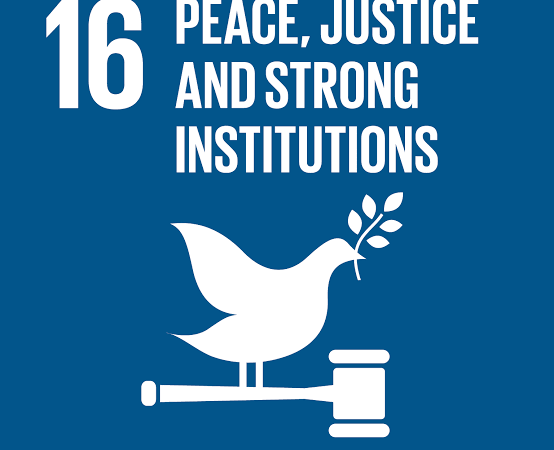By: Levi Cluzel, Junior College 2 Courage

Indonesia is a vast country where people have different religions, ethnicities, and cultures. Despite being a country of diversity, what can we say about the extent of the evidence that people in this country are becoming more open-minded?
Some people may say that Indonesia is becoming really open-minded in recent years, though, some may argue that this country has stayed as close-minded as it was in the past. This essay will examine the different aspects of the issue and find out where Indonesia stands. The term ‘open-minded’ refers to how accepting one is to other people’s ideas, opinions, and preferences; ‘extent’ refers to how far one can be open-minded; and ‘evident’ refers to how easily this trait of people is seen and reflected on their behaviours.
In Indonesia, there is still a lot of stigmas around LGBTQ+ issues. A large majority of people in Indonesia are not willing to accept people with different sexualities or gender preferences that do not conform to the norms of the society. Individuals identified as part of the LGBTQ+ community are often made fun of and harassed, may it be face to face or online. One example of which is the Indonesian artist with a stage name Lucinta Luna. Often, she becomes a subject of laughter due to her being a transgender. People harass her by calling her and saying disrespectful comments towards her preference. This only shows that Indonesia is still not open-minded about things like these.
In fact, in 2016, the Minister of Higher Education Muhammad Nasir, said he wanted to ban LGBTQ+ student organisations from university campuses. Furthermore, at a maternal health seminar, a mayor warned young mothers about instant noodles, their time and attention, he said, should be given instead to nutritious cooking and teaching their children ‘how not to be gay’.
In recent years, mass religious groups and non-governmental organisations joined the anti-LGBTQ+ movements. Some psychiatrists have proclaimed that same-sex orientation and transgender identities are “mental illnesses”. In addition, the country’s largest Muslim organisation called for the criminalization of LGBTQ+ behaviors and activism, and forced “rehabilitation” for these people. All these only prove that Indonesia has not been accepting of this very crucial issue involving the LGBTQ+ community despite its existence in the country.
Moreover, there is still a lot of stereotypes on how people dress in Indonesia. Muslim women are encouraged to start wearing hijabs and covered clothing as young as possible. Since Indonesia is a Muslim country, it is like the norm here for women to be mostly covered.
This, however, causes women who wear revealing clothes to be shamed, even more so, if they are Muslims. Though it mainly happens to women, even men are often shamed and made fun of for their style and clothing. An example for this is a young Indonesian YouTuber named Andhika Wira, also known for his YouTube username, SkinnyFabs.
Since it is more common for girls or women to have long hair, people often call and label him as a girl/woman just because he has a long hair. One of the many comments that we can find in his uploads is “Hai cantik” which translates to “Hey pretty” in a sarcastic or deamening way, basically implying that he looks like a female. This shows how close-minded Indonesians are even in this modern era in terms of modern clothing and styling preferences.
However, as with everything, there is always another side to this argument.
People from this other side say that Indonesians are becoming more open-minded in accepting foreign music that might contain “explicit” words. People in Indonesia now listen to music that contains explicit words. Songs such as Ed Sheeran’s ‘Shape of You’ and Rich Brian’s ‘Who That Be’ have become popular in Indonesia even if both songs contain either explicit words or are about explicit subjects.
However, I think that this is only because many locals still do not understand English very well. They would not know whether a song has explicit lyrics, unless, of course, they know English, which is arguably still uncommon here in Indonesia. We can prove this by looking into the fact that people who listen to aggressive music such as punk or metal are still shamed. Since the “explicitness” of the music is clearly visible to anyone regardless if they understood the lyrics or not, it is easy for people toidentify the explicit contents of a song.
Furthermore, back in the year 2013, in Aceh, people seen on the streets dressing in “punk attire” were arrested and had their hair shaved off (most of them had mohawks) and were sent to a kind of concentration camp. This incident only shows how close-minded Indonesians were and possibly still are to this day.
Police shaved the hair of detained Indonesian punks at a police school in Aceh Besar in Aceh province. Sharia police are “morally rehabilitating” more than 60 young punk rock fans, saying the youths tarnish the province’s staunch Islamic image. After being arrested at a punk rock concert in the provincial capital Banda Aceh on that concert night, 59 male and five female punk rock fans have been forced to have their hair cut, bathe in a lake, change clothes, and pray.
Another point made by the other side is that the people in Indonesia are very open-minded and accepting and respecting all religions. After all, Indonesia is a country with one of the most, if not the most, religious diversity. Indonesia officially recognizes six religions which include- Islam, Protestantism, Catholicism, Buddhism, Hinduism, and Confucianism.
Furthermore, a lot of times, it happens that peple from religions other than Islam (the most common religion in Indonesia) are treated really badly. In the year 2015, also in Aceh, a church was broken down by the local police because, allegedly, the church did not have a permit to be built there. Though, apparently, they have had the required permit since 2006. One can only assume that the church was broken down for the sole reason of being of Christian property. As sad as it is, this is probably the case. Some Indonesians are, unfortunately, still not open-minded to other religions and beliefs despite being a country of diverse religions and beliefs.
In conclusion, we can say that there is progress on people being more open-minded in Indonesia. Though, admittedly, this progress is very slow. But, with the help of the new media, such as the Internet, people are becoming more open to others’ opinions and ideas. I am confident that in the future, as the newer generations take over, Indonesia can be much more open-minded about things that are currently stigmatised and labeled as taboo. I also believe that in the future, with the help of globalisation of ideas, education, cultures, and values, things will change in a more positive way.


After reading this article, I agree with what the writer has to say.
The progress of Indonesians being more opened to areas like what was mentioned about LGBTQ+ is truly not the fastest, but I know that slowly and surely, we’ll be able to see a change in an even brighter way.